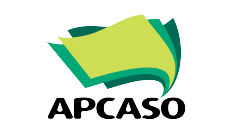Kathmandu – APCASO, a regional civil society network of community-based and non-government organizations on HIV, health, and social justice; in partnership with National Association of People Living with HIV and AIDS (PLWHA) in Nepal (NAP+N); and via a Global Fund Community, Rights, and Gender Strategic Initiative (CRG SI) technical assistance programme assignment, conducted a back-to-back meeting from 7th to 11th July 2017 on CCM 101 Training Workshop and Key Populations Engagement Plan Meeting in Nepal to support the effective inclusion CRG and key populations programming in Nepal’s Concept Notes to the Global Fund. The two meetings aimed to achieve the following objectives:
 (a) equip participants with knowledge, information, and tools to support more effective engagement by communities and civil society in Nepal Global Fund processes and grant implementation, particularly in relation to Country Coordinating Mechanism (CCM) processes and structures;
(a) equip participants with knowledge, information, and tools to support more effective engagement by communities and civil society in Nepal Global Fund processes and grant implementation, particularly in relation to Country Coordinating Mechanism (CCM) processes and structures;
(b) facilitate constructive dialogue amongst KP and CS networks on expectations around communication, coordination, and representation within and across constituencies and their representatives in the CCM; and
(c) develop a KP and CS network CCM/Global Fund engagement strategy and identify resources needed to implement this.
Since its reformation in March 2015, CCM Nepal (CCMN) has been established to ensure that the CCM is performing its functions as per Rules of Business with support from the Ministry of Health among other partners. While CCMN did not evade challenges, which hindered its operations from fully performing, efforts are now being made to ensure CCMN compliance with Global Fund’s CCM eligibility criteria and facilitating the inclusive country dialogue process.
Through the Global Fund Community, Rights and Gender Strategic Initiative (CRG SI), Nepal key population and civil society networks were assisted to improve and better engage, communicate, and coordinate with their constituencies and understand their meaningful role in country dialogue process. The workshops facilitated key population and civil society networks, and their representatives on the CCMN to develop clearer ways of working together and ensure bi-directional communication throughout the country dialogue and Global Fund grant implementation, to improve mutual accountability in decision-making. Participants underwent the basics of Global Fund processes, including understanding the funding model and their roles in engaging with The Global Fund; other sessions focused on taking stock their experience in engaging the CCM and harnessing these positions in ensuring that they have opportunity to express their expectations of their CCM representatives through a SWOT analysis.
As a result of the commitment and continuous cooperation among and between the networks and CCM Nepal members, participants signed a “Charter of Principle”, a commitment that ensures that all CCM Nepal members, CS organization, KP network representatives acting on the principles are aware of their duties and responsibilities as part of the process and the various legislations and regulations affecting their conduct and that the principles and practices of good governance are applied in all their dealings in respect, and on behalf of, the constituencies.
The second part of the workshop focused on facilitating CCM Nepal Member who represents from KP, PLWD and CS constituencies in drafting their engagement plan, building on the SWOT analysis, the Charter of Principle, and the expectations from networks and CCM members.
“[These workshops are] the result of our consultation in order to improve our capacity on constituency engagement and create a uniform understanding among ourselves. This is a rare and unique platform to bring the people who are in CCM as well as contributing on our national diseases response. The Global Fund always encourages and want to see the strong and meaningful civil society, key populations and people living with disease representation in its support in order to achieve national targets set out in strategies.”
